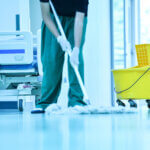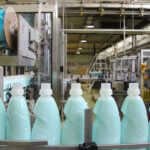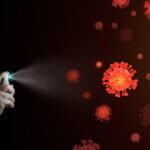During the COVID-19 pandemic, our approach to self-hygiene has undergone a significant change. Post-pandemic, face masks and sanitizers have become an important aspect of our lifestyle to stay germ-free and protect ourselves from infections.
At the start of the pandemic, there were very few sanitisers and disinfectants available in the market. However, with time, the market got flooded with disinfectant products. Due to the high demand and the emergency, some regulatory requirements were set aside. However, as the pandemic has ended, the regulatory guidelines are again in the picture.
In this content, we will discuss one of the most important standard guidelines for testing the efficacy of disinfectants and sanitizers against different viruses in the medical area.
EN 14476 helps to ensure that the sanitiser we’re relying on is doing its job properly.
Understanding EN14476 certification
All the European countries along with many other countries evaluate the disinfectant/sanitizer products intended to be used in medical areas by EN 14476 efficacy testing. Sanitisers with EN14476 certification imply that the tested products are capable of killing targeted viruses and are reliable for customer use and safety.
EN14476 is like a quality check for disinfectants and sanitizers used in hospitals and clinics. It tests how well these products can kill viruses.
Importance of EN14476 certification
EN 14476 certified products ensure that products have been thoroughly checked for their virucidal properties and can protect against viral threats. Therefore, using EN14476-certified sanitisers can play a crucial role in the reduction of viral transmission risks, thereby decreasing the likelihood of viral infections in the community.
Four Important Steps for EN 14476certification Process
1. Product submission –
The manufacturer sends the sanitizer product to an accredited testing laboratory for assessment.
2. Laboratory testing –
The laboratory carries out a variety of tests as per the EN 14476 standard guideline to evaluate the efficacy of the disinfectant/sanitizer against different types of viruses. These tests include disinfectants intended to be used in different medical areas such as hygienic handwash, hand rub, instrument disinfection, surface disinfection, and textile disinfection.
Testing laboratories play the most critical role in the development of a product by evaluating the product’s performance against the target microbes. A lack of proper quality testing setup can lead to wrong, unreliable, non-reproducible data leading to a poor-quality product. Before sending your products for testing, make sure that the lab is well-equipped and capable of meeting industry testing standards.
3. Data analysis and submission –
After product efficacy testing, the next step is to analyze the data, and if the sample has passed as per the EN 14476 guideline submit the report to the regulatory authorities for audit and review. Documentation submission is important to get the approval from regulatory authorities. Review and audit documentation confirms that the tested product complies with established regulatory standards and safety requirements of end users.
4. Certification issuance –
If the sanitizer meets all the necessary criteria, the country’s regulatory body will issue a certification confirming that the product complies with EN14476 testing guidelines.
EN 14476 certification process is crucial for ensuring that sanitizers are both effective and safe. By meeting this standard, manufacturers can prove the quality of their products, giving consumers confidence in their ability to combat harmful viruses. With the increasing demand for sanitisers, upholding high efficacy and safety standards through certifications like EN14476 is vital for protecting public health and ensuring well-being.
EN 14476 testing with MIS Lab
Manufacturers aiming for EN14476 certification for their sanitizers must collaborate with laboratories specializing in microbial testing such as MIS.
At MIS, we offer routine microbiology testing for sanitisers, antiseptics, and surface disinfectants utilized across various application areas, including human medicine, veterinary, domestic, and institutional settings.
With state-of-the-art facilities and a team of highly experienced professionals, MIS offers thorough testing services to guarantee compliance with EN14476 and other crucial standards.
Reach out to MIS today to discuss your EN 14476 testing requirements.









